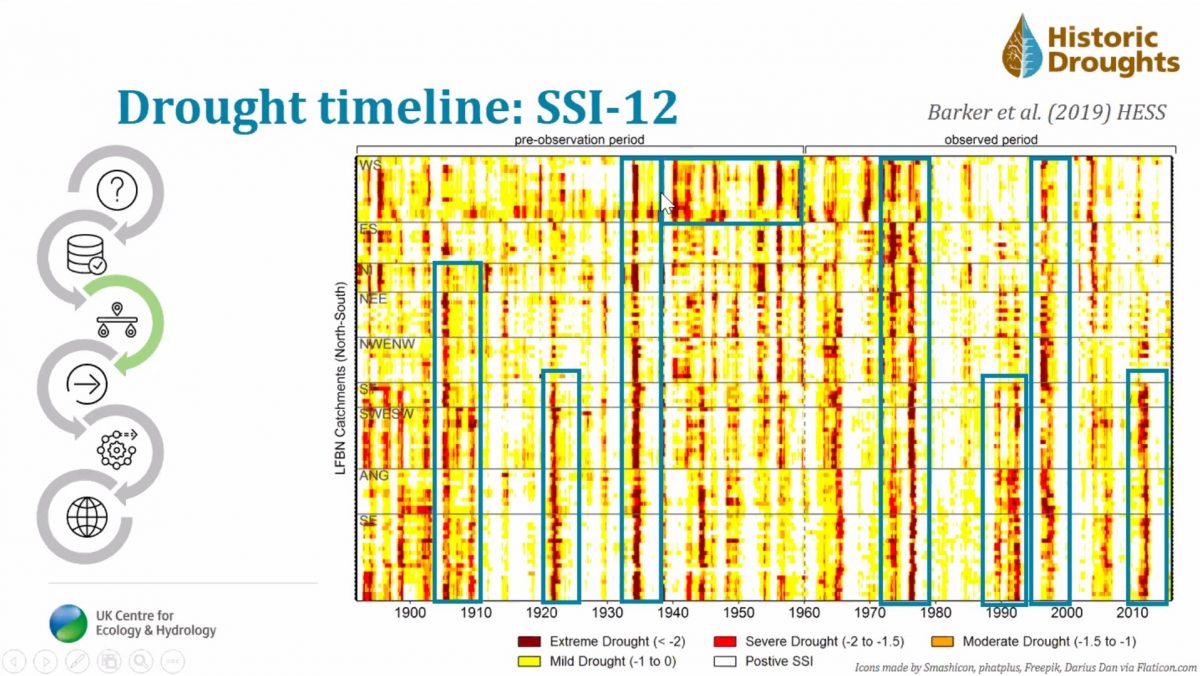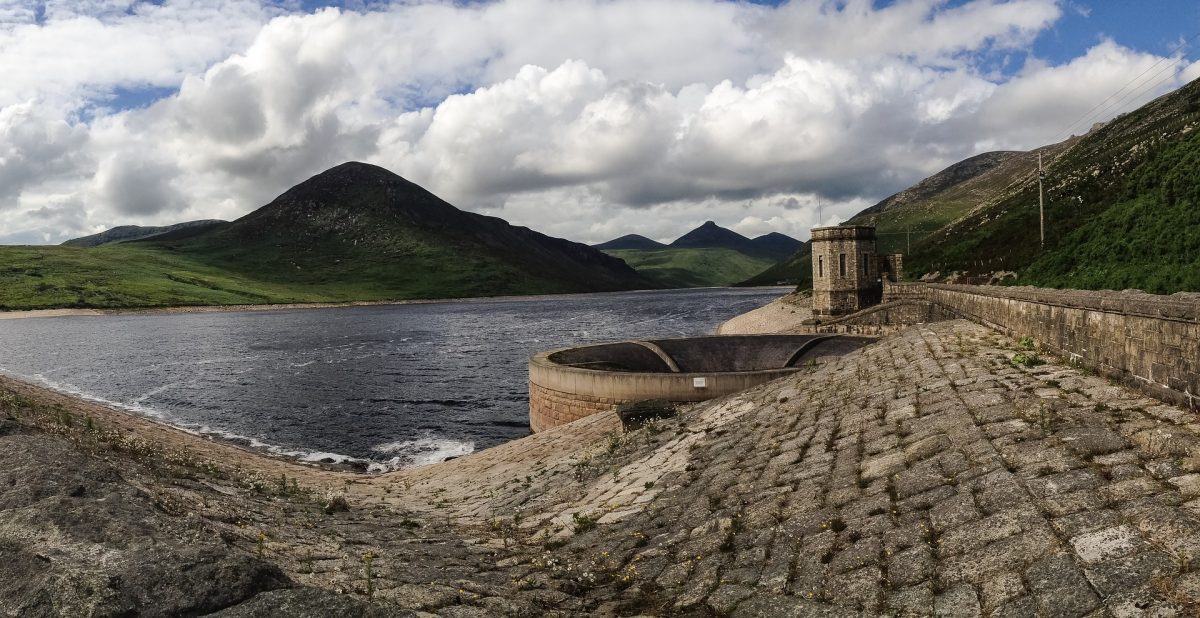Drought and Water Scarcity: addressing current and future challenges, International Conference
View presentations below
This international event was held at Pembroke College, University of Oxford over 20-21 March 2019.
Speakers from around the world gathered to present and discuss their research on drought and water scarcity. There was an impressive range of data, topics, in-depth knowledge and communication insights which demonstrated the breadth and interdisciplinary nature of research into drought and water scarcity.
Delegates heard that drought and water scarcity are expected to become more severe due to the influence of climate change and pressure on water resources from economic and demographic changes. The impacts of this affects hydrology, agriculture and farming, industry and communities. Water and the lack of water effects every aspects of society and the environment, and the lack of water has profound consequences.
You can see the full programme here.
A number of the oral and poster presenters have kindly given permission to share their work. You can access the presentations by clicking on the links below.
Presentations available to view
Amanda Fencl, University of California, Davis – “Interconnections between Research on Groundwater, Drought and Climate Change”
Anne van Loon, Birmingham University – “Drought in the Anthropocene: vulnerability & resilience”
Antonia Liguori, Loughborough University – “Learning around ‘storying water’ to build an evidence base to support better decision-making in UK drought risk management”
Ayilobeni Kikon, National Institute of Technology Karnataka – “Application of Optimized Machine Learning Technique in Drought Forecasting Using SPI”
Caroline King, CEH; co-authored with Daniel Tsegai, Programme Officer, UNCCD Secretariat – “A review of methods for drought impact and vulnerability assessment”
Cedric Laize, TBI & GeoData Institute – “Relationship between a drought-oriented streamflow index and a series of riverine biological indicators”
Christopher Nankervis, Weather Logistics Ltd – “Use of Copernicus seasonal climate forecast model data to improve the accuracy of long-term forecasts: the UK Summer Rainfall Insights project.”
Daniela Anghileri, University of Southampton – “Strengthening research capabilities for addressing water and food security challenges in sub-Saharan Africa”
Emma Cross, Environment Agency – “The 2018 heatwave; its impacts on people and the environment in Thames Area”
Elizabeth Brock, Met Office; Katherine Smart, Anglian Water – “Re-analysis of historical events using up to date extreme value techniques, to determine the return period of historical and stochastic droughts, with particular reference to ‘severe’ or 1 in 200 year return period events”
Feyera A. Hirpa, Ellen Dyer, Rob Hope, Daniel O. Olago, Simon J. Dadson, University of Oxford – “Finding sustainable water futures in the Turkwel River basin, Kenya under climate change and variability”
Fiona Lobley, Environment Agency – “2018 dry weather and its impacts; looking ahead to 2019”
Frederick Otu-Larbi, Lancaster University – “Modelling the effects of drought stress on photosynthesis and latent heat fluxes.”
Granville Davies and Miranda Foster, Yorkshire Water – “Water resources in Yorkshire, UK in 2018: drought management, perception and communication”
Harry West, University of the West of England, Bristol – “Examining spatial variations in the utility of SPI as a 3-month-ahead environmental drought indicator”
Henny van Lanen, Wageningen University & Research – “The 2018 NW European Drought: warnings from an extreme event”
Katherine Smart, Anglian Water; Elizabeth Brock, Met Office – “Re-analysis of historical events using up to date extreme value techniques, to determine the return period of historical and stochastic droughts, with particular reference to ‘severe’ or 1 in 200 year return period events”
Kerstin Stahl, Freiburg – “Customizing drought indices to improve drought impact monitoring and prediction”
Kevin Grecksch, Centre for Socio-Legal Studies, University of Oxford – “Achieving water efficiency through social norms in the public sector”
Len Shaffrey, NCAS, University of Reading – “Has climate change increased the chance of events like the 1976 North West European drought occurring?”
Lucy Barker, Centre for Ecology & Hydrology – “How severe were historic hydrological droughts in the UK? Insights from a systematic characterisation and ranking of events back to 1891”
Mark Smith, Hydro-Logic Services (International) Ltd – “Recent trends in water resources planning and management, and the rising importance of planning processes in reflecting the ‘consequences’ of relevance and interest to customers and stakeholders”
Massimiliano Pasqui, CNR – “A customizable drought monitoring and seasonal forecasting service to support different users’ needs”
Matt Fry, CEH – “The Historic Droughts Inventory: an accessible archive of past drought impact information for the UK from diverse documentary sources”
Miranda Foster and Granville Davies, Yorkshire Water – “Water resources in Yorkshire, UK in 2018: drought management, perception and communication”
Mike Morecroft, Natural England – “Drought impacts on the natural environment and lessons for climate change adaptation”
Nikos Mastrantonas, CEH – “Drought Libraries for enhanced resilience in long term water resource planning in the UK”
Paul Whitehead, University of Oxford – “Impacts of climate change on water quality affecting upland and lowland rivers, wetlands and delta systems”
Peter Anthony Cook, NCAS-Climate, Department of Meteorology, University of Reading – “Variations in the West African Monsoon from reanalysis and model results”
Peter Kettlewell, Harper Adams University – “Mitigating drought impact on crop yield by applying film-forming polymers”
Rob Wilby, Loughborough – “Challenging the mantra of wetter-winters, drier summers in the UK”
Ruth Langridge, University of California, Santa Cruz – “Groundwater management in planning for drought: experience from California, USA”
Sandra Santos, Wageningen University – “Improving institutional frameworks integrating local initiatives from communities exposed to drought and water scarcity in Ecuador”
Stephen McGuire, SEPA – “Assessing the impacts of water scarcity in Northeast Scotland through the summer of 2018.”
Wiza Mphande, Harper Adams University – “Elucidating Drought Mitigation with Antitranspirants in Spring Wheat”


